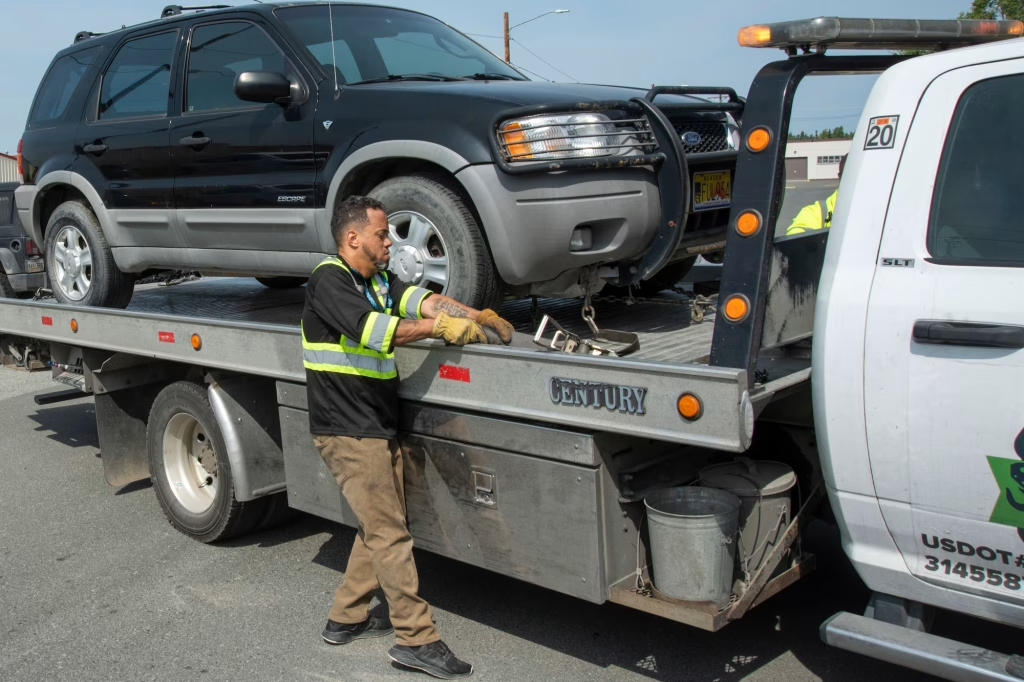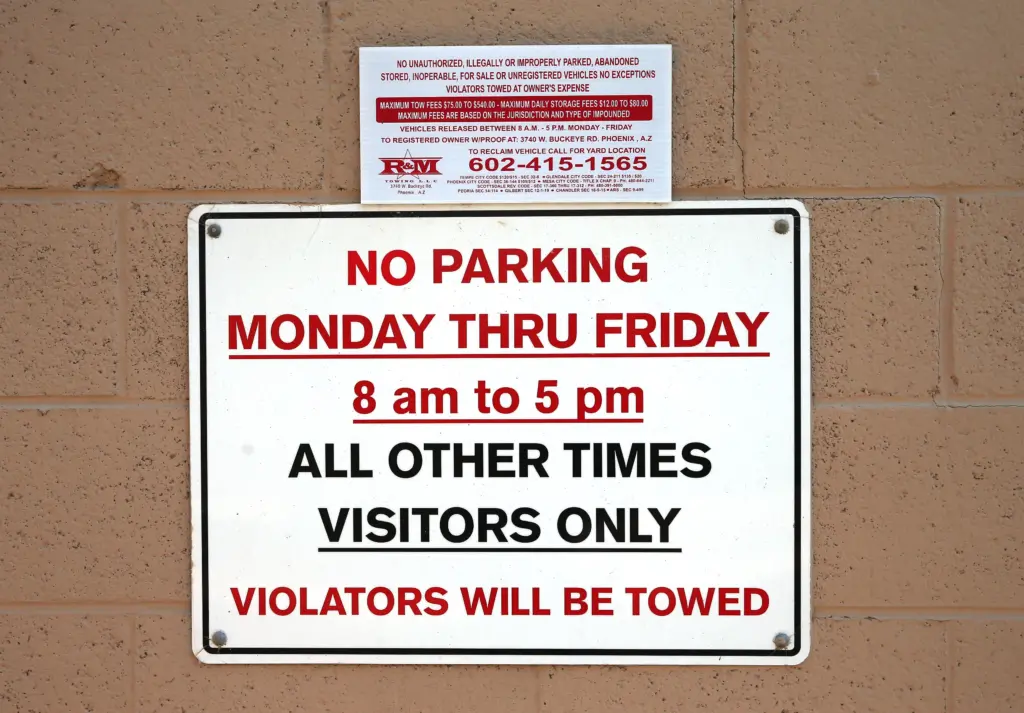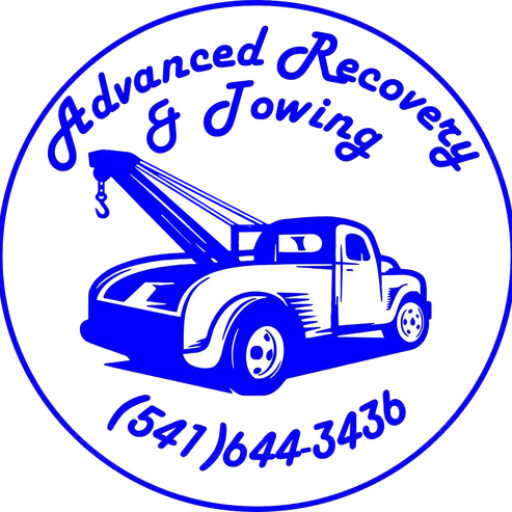Permission to Tow:
Know Your Rights
Getting your car towed can feel like a personal violation, especially when you weren’t even given a heads-up. The rules surrounding towing can be confusing, leaving many wondering about the permission needed to tow and the authorization required to tow a vehicle. This guide unpacks these critical aspects, focusing on the towing industry in Oregon.
Key Takeaways
- Know Your Rights: Always check if a towing company has the necessary authorization.
- Private Property Towing: Understand when and how a vehicle can be towed without notice.
- Regulations for Towing Companies: Familiarize yourself with the rules to ensure compliance and avoid illegal tows.

The Fine Print of Towing Authorization
What Is Authorization?
In Oregon, like in many states, towing companies must have explicit authorization before they can legally tow a vehicle. This isn’t just a courtesy—it’s a legal requirement designed to protect vehicle owners from predatory towing practices. Authorization often comes in two forms:
- Owner Authorization: The vehicle owner consents to the tow.
- Law Enforcement Authorization: Law enforcement officials provide the go-ahead, typically in situations involving abandoned vehicles or those parked illegally.
The Process for Towing Companies
For a towing company, obtaining the necessary permissions involves several steps. They must verify ownership or get an official order from law enforcement. In cases involving private properties, like apartment complexes or commercial lots, the property owner or manager’s consent is crucial. This ensures that towing companies aren’t overstepping their bounds.
Here’s a simplified look at the typical process:
| Step | Description |
|---|---|
| Verification | Confirm vehicle ownership or get law enforcement authorization |
| Owner Notification | Attempt to notify the vehicle owner (if applicable) |
| Documentation | Keep detailed records of the authorization and towing process |
| Compliance Check | Ensure all actions comply with local and state regulations |
Rules for Towing Companies
Towing companies in Oregon must adhere to strict regulations designed to protect consumers. These include:
- Proper Licensing: Every towing company must have a valid license to operate.
- Clear Signage: Tow-away zones must be clearly marked with signage indicating the towing policy and the contact information of the towing company.
- Fair Fees: Fee structures should be transparent and reasonable, avoiding exorbitant charges for basic services.
These rules ensure that consumers aren’t left in the dark about their rights and the towing process. Violations can lead to significant fines and legal action against the towing company.
Towing from Private Property Without Notice
When Is It Legal?
One of the most contentious aspects of towing is when it happens without notice. This typically occurs on private property, where property owners or managers have the right to remove vehicles under certain conditions. Here are a few scenarios where towing without notice might be legal:
- Unauthorized Parking: Vehicles parked in spaces reserved for others or in no-parking zones can be towed immediately.
- Expired Permits: If a vehicle’s parking permit is expired or invalid, it may be towed without prior notice.
- Blocking Access: Vehicles obstructing driveways, fire lanes, or other essential access points can be towed instantly.
Legal Requirements and Owner Protections
While property owners have the right to tow unauthorized vehicles, they must follow specific legal requirements to ensure fairness. These include:
- Signage: Clearly posted signs must indicate that unauthorized vehicles will be towed at the owner’s expense.
- Documentation: Property owners must keep records of the tow, including the reason for towing and the vehicle’s condition before the tow.
- Notification: Efforts should be made to notify the vehicle owner as soon as possible, detailing where the vehicle has been taken and how it can be retrieved.
Violating these requirements can lead to legal repercussions for property owners and towing companies alike. The Oregon Department of Justice provides detailed guidelines to help navigate these situations: Oregon DOJ Towing Regulations.
Towed from Private Property Without Notice: What to Do
Immediate Steps to Take
Discovering that your car has been towed without notice can be a stressful experience. Here’s what you should do:
- Confirm the Tow: Check for signs around the area indicating that towing is enforced and look for contact information.
- Contact the Towing Company: Use the provided information to get in touch with the towing company and confirm the location of your vehicle.
- Gather Documentation: Collect all relevant documents, such as parking permits, lease agreements, and any correspondence with property management.
Dispute Resolution
If you believe your vehicle was towed illegally or without proper notice, you have the right to dispute the tow. Here are some steps to consider:
- Request Documentation: Ask the towing company for proof of authorization and compliance with legal requirements.
- File a Complaint: Contact the Oregon Department of Justice or local consumer protection agency to file a formal complaint.
- Seek Legal Advice: In some cases, consulting with a legal professional can help you understand your rights and options for recourse.
Authorization and Towing Laws: Case Studies
The Unauthorized Tow
Imagine you parked in what seemed like an innocuous spot at your friend’s apartment complex. There were no signs explicitly stating “No Parking,” so you figured it was safe. A few hours later, your car was gone. This scenario plays out frequently, highlighting the importance of clear signage and proper authorization. In Oregon, such a tow without proper notice and signage could be grounds for a dispute.
The Expired Permit Dilemma
Another common issue arises with expired permits. A tenant, let’s call her Jane, forgot to renew her parking permit. One morning, she found her car missing. Despite her permit being expired, if the towing company or property management failed to notify her or lacked the necessary signage, she could challenge the tow.
Oregon’s Legal Framework: Towing Regulations
Oregon’s towing laws are designed to balance the rights of vehicle owners with the needs of property owners and towing companies. Some key regulations include:
- ORS 90.485: This statute outlines the conditions under which a landlord may have a vehicle towed from their property. It emphasizes the necessity of proper signage and tenant notification. For more detailed information, visit Oregon Public Law on Towing.

Common Scenarios and Legal Ramifications
When it comes to vehicle towing, every situation is unique, yet common scenarios often arise. Understanding the specifics can help you navigate these tricky waters with confidence.
Scenario 1: Unauthorized Tow from a Business Parking Lot
Consider a small business owner, Mark, who finds an unfamiliar car taking up valuable customer parking space. Without proper signage indicating the towing policy, Mark decides to have the vehicle towed. The vehicle owner, upon discovering their car missing, could legally challenge the tow. In Oregon, towing from private property without appropriate signs clearly stating the tow-away policy and the towing company’s contact information is illegal. Mark could face fines and be required to compensate the vehicle owner for any damages incurred.
Scenario 2: Tenants and Expired Parking Permits
In an apartment complex, Sarah, a tenant, forgets to renew her parking permit. Despite her long-standing tenancy and good relationship with management, her car gets towed one morning without any prior notice. Oregon law stipulates that tenants must be informed of towing policies and given a reasonable opportunity to rectify issues like expired permits before their vehicle is towed. Sarah’s case could be grounds for legal action against the property management for failing to notify her adequately.
Frequently Asked Questions
What are the essential signs that must be posted in tow-away zones?
According to Oregon law, tow-away zones must have clear, visible signs that include:
- The statement that unauthorized vehicles will be towed.
- Contact information for the towing company.
- The towing company’s operating hours.
- Any applicable fees for towing and storage.
These signs must be placed at all entrances and exits of the property, ensuring that vehicle owners are aware of the potential for towing.
How can I dispute an illegal tow in Oregon?
If you believe your vehicle was towed illegally, you can take the following steps:
- Gather Evidence: Collect photos of the area where your vehicle was towed, especially if signage was unclear or missing.
- Request Documentation: Contact the towing company and request all documentation related to your tow, including the authorization.
- File a Complaint: Submit a complaint to the Oregon Department of Justice or your local consumer protection agency. Detailed guidelines can be found on their website: Oregon DOJ Towing Regulations.
- Seek Legal Assistance: Consult with an attorney who specializes in consumer protection or towing disputes to explore your legal options.
Can my car be towed for expired registration in Oregon?
Yes, vehicles with expired registration can be towed, especially if parked on public property or in areas where vehicle registration is strictly monitored. However, towing for expired registration from private property still requires proper signage and adherence to the notification policies.
Key Points for Vehicle Owners
Understanding your rights and the legal requirements for towing can save you a lot of trouble. Here are some key points to remember:
- Always Look for Signs: When parking in a new area, always check for tow-away signs. If there are none, take photos as evidence.
- Know Your Rights: If your vehicle is towed, you have the right to request all relevant documentation and to dispute the tow if you believe it was conducted illegally.
- Stay Informed: Keep your vehicle registration and any parking permits up to date to avoid unnecessary issues.
Best Practices for Towing Companies
For towing companies, adhering to legal standards is crucial. Here’s a rundown of best practices to ensure compliance and maintain a good reputation:
- Clear Signage: Ensure all tow-away zones have clear and visible signage as per Oregon law.
- Proper Documentation: Keep detailed records of all tows, including the authorization process and any communications with vehicle owners.
- Fair Practices: Avoid predatory towing practices. Ensure that all fees are transparent and reasonable.
- Regular Training: Regularly train your staff on the latest regulations and customer service best practices.
Table: Summary of Oregon Towing Regulations
| Requirement | Description |
|---|---|
| Signage | Must be clear, visible, and include towing policy, contact info, operating hours, and fees |
| Documentation | Detailed records of authorization and towing process |
| Owner Notification | Reasonable effort must be made to notify vehicle owners |
| Licensing | Towing companies must be properly licensed |
| Fee Transparency | All fees must be transparent and reasonable |
| Legal Recourse for Violations | Vehicle owners can dispute illegal tows through the Oregon DOJ or local consumer protection agency |
Case Study: Successful Dispute of an Unauthorized Tow
John, a resident of Portland, found his car towed from his apartment’s parking lot despite having a valid permit displayed. He quickly contacted the towing company, only to be met with uncooperative staff. John gathered evidence, including photos of his permit and the lack of clear signage in the parking area. He filed a complaint with the Oregon DOJ, providing all the necessary documentation. The investigation revealed that the towing company had violated state regulations by not having proper signage and failing to document the tow appropriately. John was compensated for the towing and storage fees, and the towing company faced hefty fines and penalties.
External Resources
For more detailed information on Oregon’s towing laws and consumer rights, visit the following resources:
